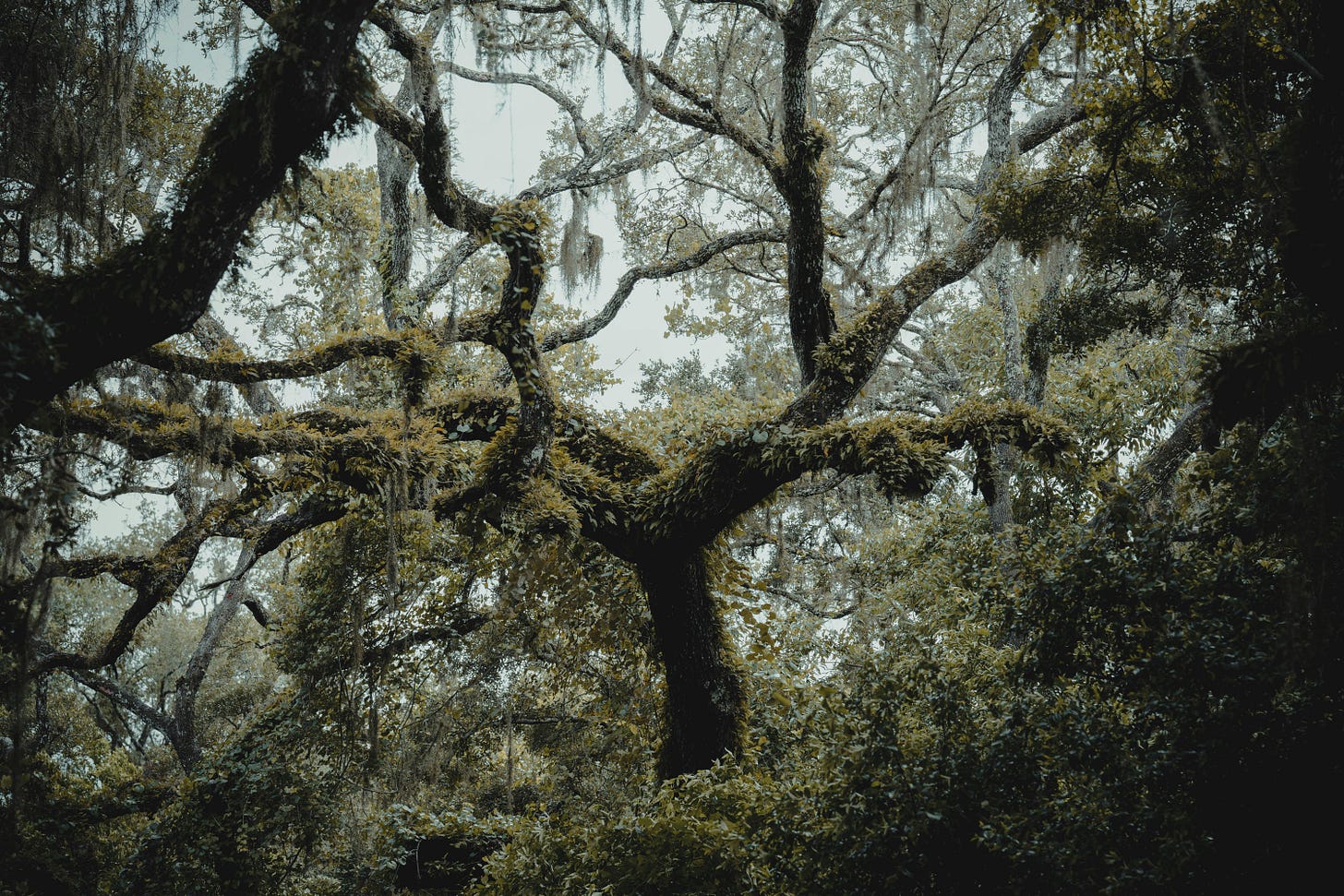You are receiving this because you have subscribed to Daniel Firth Griffith’s, or Robinia Institute’s, or The Wildland’s email newsletter or Substack, which are, today, one and the same. Welcome!
If you enjoy this content, if you find it meaningful to you, we encourage you to become a paid member for $3/mo! With a paid subscription, you get access to all of my four of my previously published and award-winning books (digital and audiobook versions) and so, so much more! It may be a cup of coffee for you, but it is the nourishment that keeps up alive, and we are so very thankful!
This chapter of Stagtine, my latest book that we are dripping here on The Wildland Chronicles, is provided for all PAID members. BUT TODAY, this chapter is given to you for free.
To view a full (slowly released) Table of Contents to Stagtine, my latest book made available to you all in both paperback, digital, and audiobook formats, click here!
You can also purchase all the versions of Stagtine on Amazon.
To read the previous chapter:
Anam Cara, My Soul Friend
I called our local feed store and asked for a bag of sulfur.
“You making meth?” they questioned hesitantly.
“No, I’m saving our cow’s life.” I replied stubbornly, caught off guard by the forwardness of her question. They sold us one small bag, nothing more, just in case I was lying. We paid in cash.
Morgan and I did not know if pure sulfur would kill or heal. We did not know if Nancy would even take it. How do you feed sulfur to an animal? Do you mix it in something else, like grains? We had not thought of that, nor did we have the grain to try.
Late that evening, standing stupidly in her valley, doubt delved its way deeper into our guts and we paused. We had poured pure, yellow sulfur into an old rubber bin and I held it in my hands like an offering to some distant god.
“Put it down and let’s go.” Morgan was tired and I think it all felt a bit too intimate, too personal to her own body’s hardships in nursing little Wynnie the past few months.
I did and we left. Stepping slowly backward, our eyes fixed on Nancy like they were fixed on a Queen in her hall in another age. We walked slowly home, quietly, only Wynnie’s cooing echoed in the darkness.
The next morning, fearing the worst, Morgan and I crested the hill of cedar. Our stomachs lived in our throats all night. Would Nancy take the sulfur? Would it kill her? Would it heal her? We felt alone, unequipped to manage animals, ill-informed by lost generations before us, unready for life.
“If only your grandfather was here,” my mother would often say to me. “He would know what to do, you know? He could touch the soil and it would grow tomatoes. He put copper and old, iron nails and pipes in his garden long before you all decided that it was cool.” My grandfather, an ancient Croat, died of a brain aneurism, unexpectedly and instantly in his basement when he was sixty.
If only, I thought as Nancy’s black mass appeared in the little, dawn light before us. She was standing and the rubber bucket of sulfur lay upside down in the crownbeard. Our heart sank. I reached slowly to turn it over, expecting to see a pile of yellow powder mildewing the soil below. But nothing was there, just dry grass in a sea of dew. I crawled on my knees and lowered my head below the canopy of yellow-green vegetation, searching for the pure, yellow particles. There was none.
“Daniel!” Morgan cried from behind me. “Look!”
The new dawn and valley light colored the germinate streaks of Nelly, now on her feet and perched under the crescent shape of Nancy. Startled by the attention, Nelly pulled off the udder and looked at us. White fluid cascaded into a free fall to her feet.
Pain and joy, I thought.
Morgan grabbed and squeezed my hand. I squeezed back.
Nelly smiled.
. . .
Tradition is not the worship of the ashes but the preservation of the fire, like pursed lips.
In my genetic memory, I have over thirty words for meadow, but I have never walked in one. Long has assimilation been worked finely over the irons of civilization, its metallic song echoing against falling trees and their hills. The songbirds left with their people and the meadows followed. Oral history became pagan mythology and our language was nearly forgotten. We were colonized by civilization thousands of years ago. Today, my feet trod realms unknown to them, unfamiliar, and I am worlds away from my ancestors’ dreams. My hands work in unfamiliar graves.
Purling waves that rise, in our language, is tonnadh. It is also a word describing death by poison. Tonnach means tempestuous, tonach describes the work of an undertaker, and the verb tonaim means ‘I close the mouth of a dead person and prepare them for death.’1
Waves, from the root tonn, are important in ancient Irish mythology. We have the phrases and tales of Tonn Tuaithe, Tonn Rudhraighe, and Tonn Clíodhna. In his recent book, Manchán Magan connects these three phrases as “supernatural forces that thunder” around Ireland’s island perimeter, “protecting the land, binding and controlling existence.” Waves are creative forces. But they are also grounding. They serve as a raft in our creation story.2 Lugh, god of sun and light, skill and art, and member of the Tuatha Dé Danann, a group of supernatural beings and earlier residents of the island Ériu (or modern-day Ireland), sailed to this land on waves that “thundered a welcome.”3
Keep reading with a 7-day free trial
Subscribe to Unshod to keep reading this post and get 7 days of free access to the full post archives.



